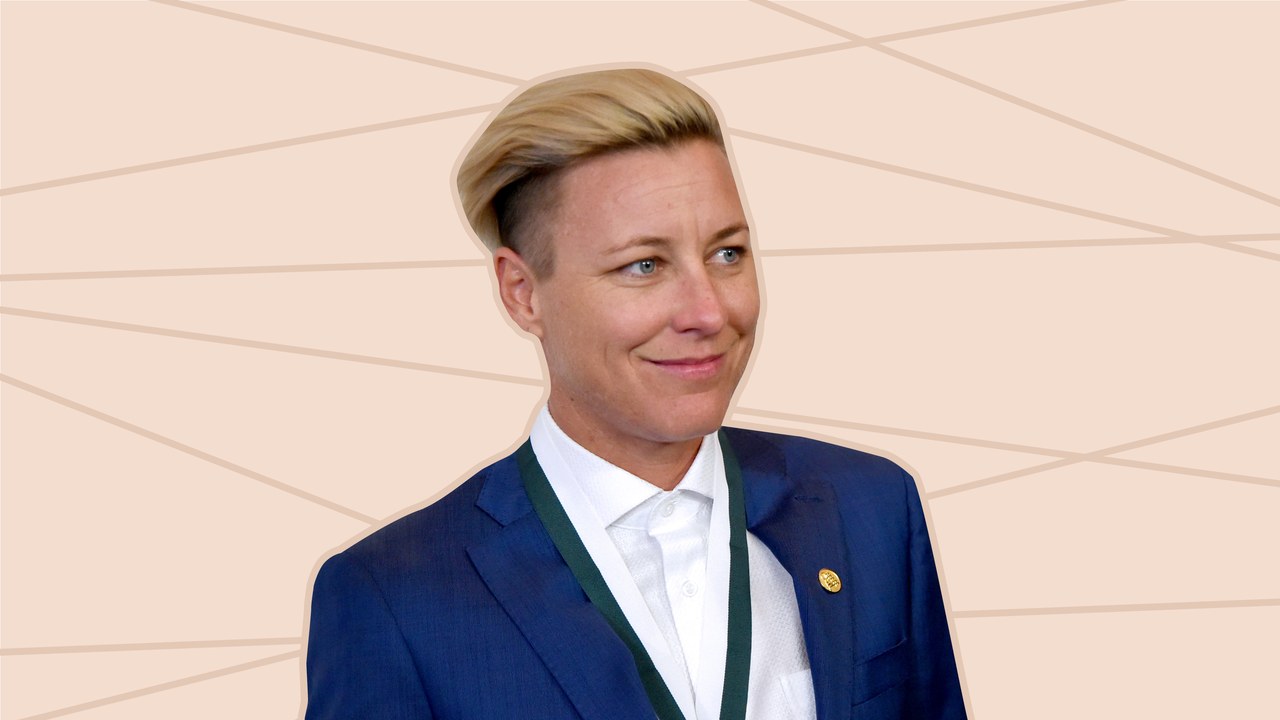Abby Wambach on How She's Supporting the U.S. Women's Soccer Team in Their Fight Against Gender Discrimination

On March 8—International Women’s Day, no less—28 members of the world champion United States women’s soccer team filed a gender discrimination suit against U.S. Soccer. “Each of us is extremely proud to wear the United States jersey, and we also take seriously the responsibility that comes with that,” team member Alex Morgan told the Associated Press. “We believe that fighting for gender equality in sports is a part of that responsibility. As players, we deserved to be paid equally for our work, regardless of our gender.”
The U.S. women’s soccer team first began their fight for equal compensation in 2016, when five players filed a complaint with the Equal Employment Opportunity Commission (EEOC) asking to be paid as much as the players on the men’s team. But the EEOC has still not issued a decision in their case. Then in 2017, they negotiated a new collective bargaining agreement—which increased their salaries and practice conditions—with U.S. Soccer that will run through 2021. And so the new gender discrimination suit is a further step—one that former soccer player, coach, and two-time Olympic gold medalist Abby Wambach cheers.
Since she retired from the sport in 2015, Wambach has dedicated herself to ending sex discrimination. At Barnard College’s graduation in 2018, Wambach turned her commencement address into a call to action. She told the graduating class, “Like all little girls, I was taught to be grateful. I was taught to keep my head down, stay on the path, and get my job done. I was freaking Little Red Riding Hood. The message is clear: Don’t be curious, don’t make trouble, don’t say too much, or bad things will happen. I stayed on the path out of fear—not of being eaten by a wolf—but of being cut, being benched, losing my paycheck. If I could go back and tell my younger self one thing, it would be this: ‘Abby, you were never Little Red Riding Hood, you were always the wolf.’” The speech has been viewed over 180,000 times and inspired her upcoming book, WOLFPACK, a guide for women to unlock their own power.
As the highest all-time goal scorer for the national team—and the world record holder for international goals for both female and male soccer players with a whopping 184 goals—Wambach is one of the most recognizable face in women’s soccer. But for much of her career, Wambach explains she felt so fortunate to be able to compete in the game she loved that she never fought to be appropriately compensated for shattering those records. It’s a choice she now deeply regrets. Wambach could see just how badly the women’s team had been treated—and decided her decades of silence and servitude to the sport were over.
Wambach now travels the country as a crusader for equal pay across all industries, telling women that feeling “grateful” for their work should never stop them from demanding what they’re entitled to. Here, she opens up to Glamour about the U.S. women’s soccer team’s revolutionary discrimination suit—and how she champions the team from the sidelines.
Glamour: In your viral Barnard speech, you describe this moment when you appeared at the ESPY Awards, side by side with Peyton Manning and Kobe Bryant—and it dawned on you that they had so much more financial security going into retirement than you. What was it like to have that realization, then go back to your hotel room?
Abby Wambach: I played professional sports, so I lived a very privileged life where I was traveling the world representing my country. At the time, I thought this was better than most women’s experience, because I was really successful. But then I got back to the hotel and I started to understand what had really gone on here, and it was this anger-provoking moment that made me realize that even though I felt that I was one of the women who got a seat at the table, next to Kobe and Peyton, I was walking into a very different retirement. For me, that was the minute I figured out what I was going to do for the rest of my life: I was going to focus that energy and that rage, which turned into my Barnard speech, and now this book. It’s a sobering moment for women when we’re made very aware of where we stand in the order of things. But I don’t like to just sit into despair, I’m about action—so this is my attempt to help change the realities of women everywhere.
